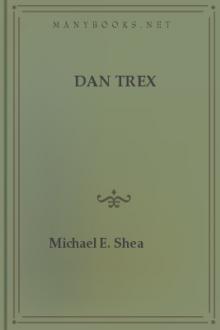How to Be a Mentsh (and Not a Shmuck), Wex, Michael [top inspirational books .txt] 📗

Book online «How to Be a Mentsh (and Not a Shmuck), Wex, Michael [top inspirational books .txt] 📗». Author Wex, Michael
Note the subtlety of Hillel’s closing put-down. Anyone who could afford to bet four hundred zuzim on anything had plenty of money to spare. What Hillel is saying is, “You can lose as much money on me as you want, rich boy, there isn’t enough of it to make me betray my principles.” Of course, it’s unlikely that the guy who made the bet got much of this; he was too busy thinking about his four hundred zuzim. Hillel’s renowned lenience in halachic decision contrasts with his apparent inflexibility about losing his temper, and he is a perfect illustration of psychologist Lawrence Kohlberg’s maxim, “There are exceptions to rules…but no exceptions to principles.”
The admonition at the beginning of this anecdote reminds us of why it is being told in the first place. We’re being counseled to be like Hillel rather than his great rival and antagonist, Shammai. Hillel is described as “mild.” The Hebrew could also be translated as “modest, humble,” or even “meek” and is the adjectival form of the noun that is used to characterize Zechariah ben Avkilos in the story of why Jerusalem was destroyed. Hillel’s mildness or humility is the real thing. Even though he’s head of the Sanhedrin, he doesn’t live in a palace, doesn’t seem to have any servants, and isn’t too grand to come outside in his robe to answer questions that he already knows are going to be stupid. When the same word is used about Zechariah, it’s a bitter circumlocution, a disaffected way of describing the haughty pomposity that he maintains in the direst emergency.
Similarly, Shammai, who probably has the worst temper in the entire Talmud, is described as a kapdan, the same word that was used to characterize the person who was pronounced unfit to teach in the passage from Ovos discussed in chapter 4. And who said that the kapdan, the irascible, bad-tempered person, can’t teach? Hillel, who has just successfully managed to face down a challenge to his whole philosophy of interpersonal relations.
The text then continues with a brief anecdote about a non-Jew who wants to convert to Judaism, but only on condition that he not have to learn the Oral Law, the traditions and methods of interpretation represented by the Talmud and the rabbis who are quoted in it. His going to the two most prominent teachers of the time with such a request must have been yet another provocation, rather like asking Jean-Paul Sartre for philosophy lessons while telling him to put a lid on the French. Shammai chases him away; Hillel demonstrates the absurdity of the heathen’s request and wins him over.
A story about another proselyte follows:
On another occasion a heathen came to Shammai and said, “Convert me, provided you can teach me the whole of the Torah in its entirety while I stand on one foot.”
Shammai pushed him away with the measuring rod that he was holding.
The heathen went to Hillel, who converted him and said, “Do not do what is hateful to you to your fellow. That is the whole of the Torah in its entirety. The rest is commentary. Go and learn.”
(SHABBOS 31A)
This is one of the best-known and most frequently cited passages in the Talmud. It is often adduced as proof of Hillel’s wisdom and good nature, especially as contrasted with Shammai’s grumpy rigidity. I’ve lost count of the number of times I’ve seen it described as “the Golden Rule, but phrased negatively” or something to that effect. None of these statements is wrong, but there’s a lot more going on here than simple anticipation of Jesus.
IV
TO LOOK AT Hillel’s statement as a mere forerunner or prelude to Jesus’s more upbeat formulation about half a century after Hillel’s death is to do an injustice to both Hillel and his idea. Although Jesus seems to quote this passage almost word for word in the Gospel of Matthew, we’ll see that there is quite a gap between “do unto others” and “don’t do unto others,” and that the difference is more than a matter of grammar or rhetoric.
Negative expression comes naturally to people like Hillel and Shammai who spend much of their time codifying prohibitions and ruling on the extent of their application, but Hillel’s formulation has more to do with the rabbinic view of human nature, which lies at the root of many of the prohibitions, than with the fine points of legal terminology. The ubiquity of enemies and envy suggests that putting oneself into another’s place is not always as easy and almost never as automatic as we might wish; human beings are so various, so unpredictable, that it can be dangerous to assume that everyone would necessarily like you to treat them in the same way as you’d like them to treat you. Once we have taken care of the obvious physical needs common to all members of the species—food, shelter, clothing, and so on—we often lack the insight into others that will allow us to treat them in the way that they’d like to be treated. This is especially true with respect to the way they’d like to be treated while going about their business when there is nothing particularly wrong.
Look at the commandment about the donkey in Exodus. You would help anybody in such a situation, even an enemy, if only out of concern for the donkey. If it were you who was standing beside a collapsed donkey, you’d be willing to accept help from anyone,





Comments (0)